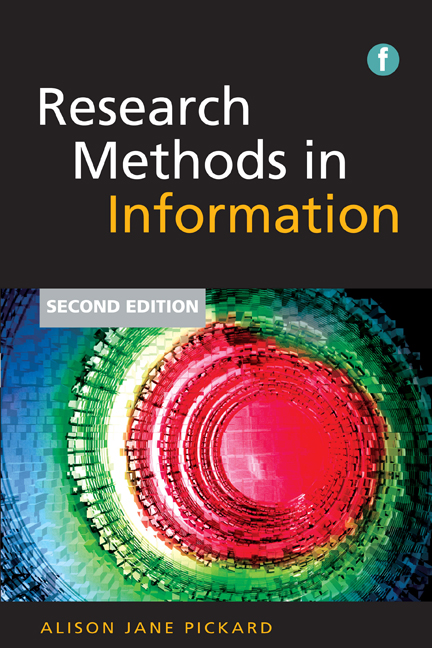Book contents
- Frontmatter
- Contents
- Preface to the second edition
- Acknowledgements
- Introduction
- Part 1 Starting the research process
- Part 2 Research methods
- 8 Case studies
- 9 Surveys
- 10 Experimental research
- 11 Usability testing
- 12 Ethnography
- 13 Delphi study
- 14 Action research
- 15 Historical research
- 16 Grounded theory: method or analysis?
- Part 3 Data collection techniques
- Part 4 Data analysis and research presentation
- Part 5 Glossary and references
- Index
13 - Delphi study
from Part 2 - Research methods
Published online by Cambridge University Press: 08 June 2018
- Frontmatter
- Contents
- Preface to the second edition
- Acknowledgements
- Introduction
- Part 1 Starting the research process
- Part 2 Research methods
- 8 Case studies
- 9 Surveys
- 10 Experimental research
- 11 Usability testing
- 12 Ethnography
- 13 Delphi study
- 14 Action research
- 15 Historical research
- 16 Grounded theory: method or analysis?
- Part 3 Data collection techniques
- Part 4 Data analysis and research presentation
- Part 5 Glossary and references
- Index
Summary
Introduction
The purpose of a Delphi study is to ‘obtain the most reliable consensus of opinion of a group of experts … by a series of intensive questionnaires interspersed with controlled opinion feedback’ (Dalkey and Helmer, 1963, 458). Helmer and Rescher were researchers employed by the RAND Corporation, the first organization ever to be called a ‘think-tank’, working for the US Air Force. The research project they were working on required the design of a method that would lead to predication of future events based on expert knowledge. Together they designed, justified and applied a method that was later to become known as the ‘Delphi’ method. In the first public dissemination of the development of this method, in 1959 Helmer and Rescher offered this explanation of why their method was best suited to prediction:
The informed expert, with his resources of background knowledge and his cultivated sense of relevance and bearing of the generalities in particular cases, is best able to carry out the application of the quasi-laws necessary for reasoned prediction in this field…. For the expert has at his ready disposal a large store of (mostly unarticulated) background knowledge and a refined sensitivity to its relevance, through the intuitive application of which he is often able to produce trustworthy personal probabilities regarding hypotheses in his area of expertness.
(Helmer and Rescher, 1959, 31)The name ‘Delphi’ was first applied to this technique by Kaplan (Woundenberg, 1991), and the association with Greek mythology was no accident. The temple at Delphi was the supposed location where the oracle Pythia would consult the gods and interpret their responses for the waiting public. There is a hint here that this was a somewhat less than complimentary reference but nonetheless the name quickly became the accepted term for this research method.
The original purpose of a Delphi study was to predict future trends but over the past 50 years this method has been applied to many studies that sought a consensus of expert opinion, not always concerned with predicting future events, but always concerned with ‘expert opinion’.
- Type
- Chapter
- Information
- Research Methods in Information , pp. 149 - 156Publisher: FacetPrint publication year: 2013
- 1
- Cited by

